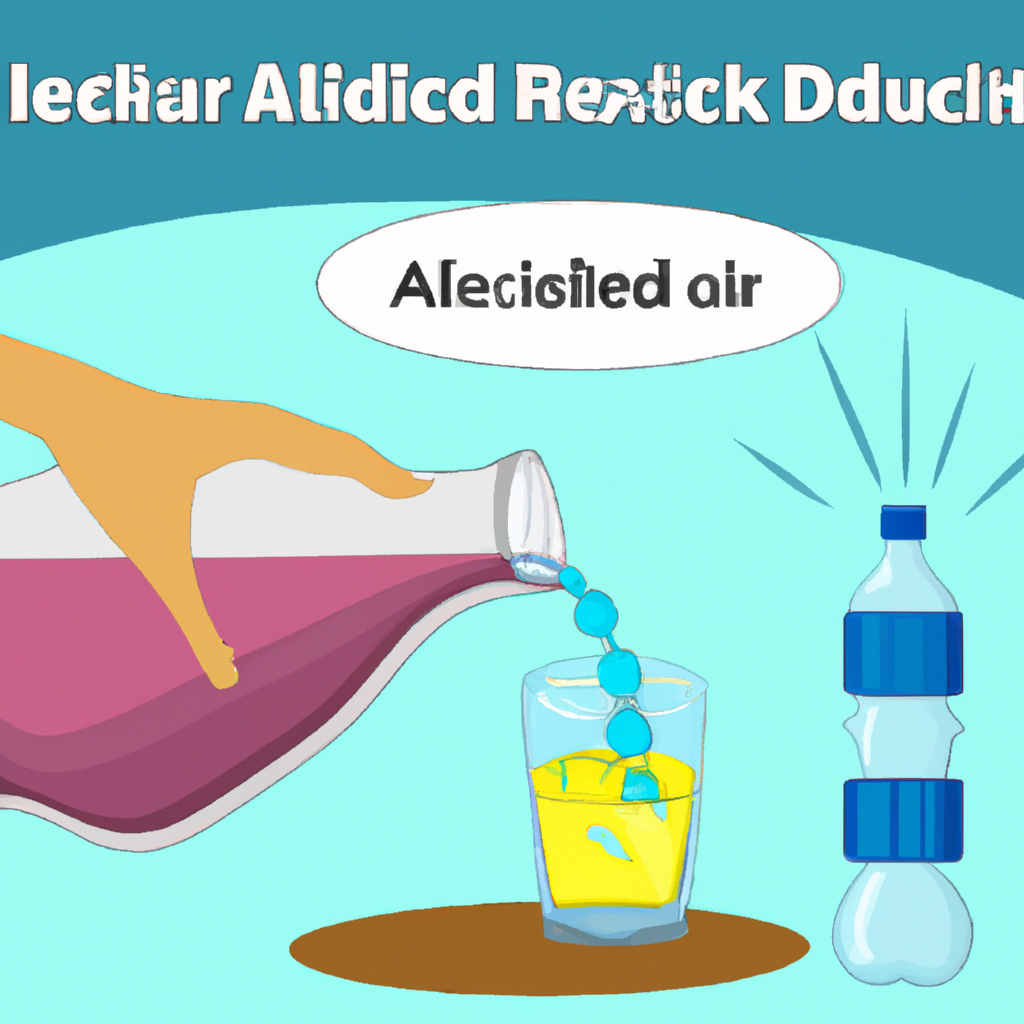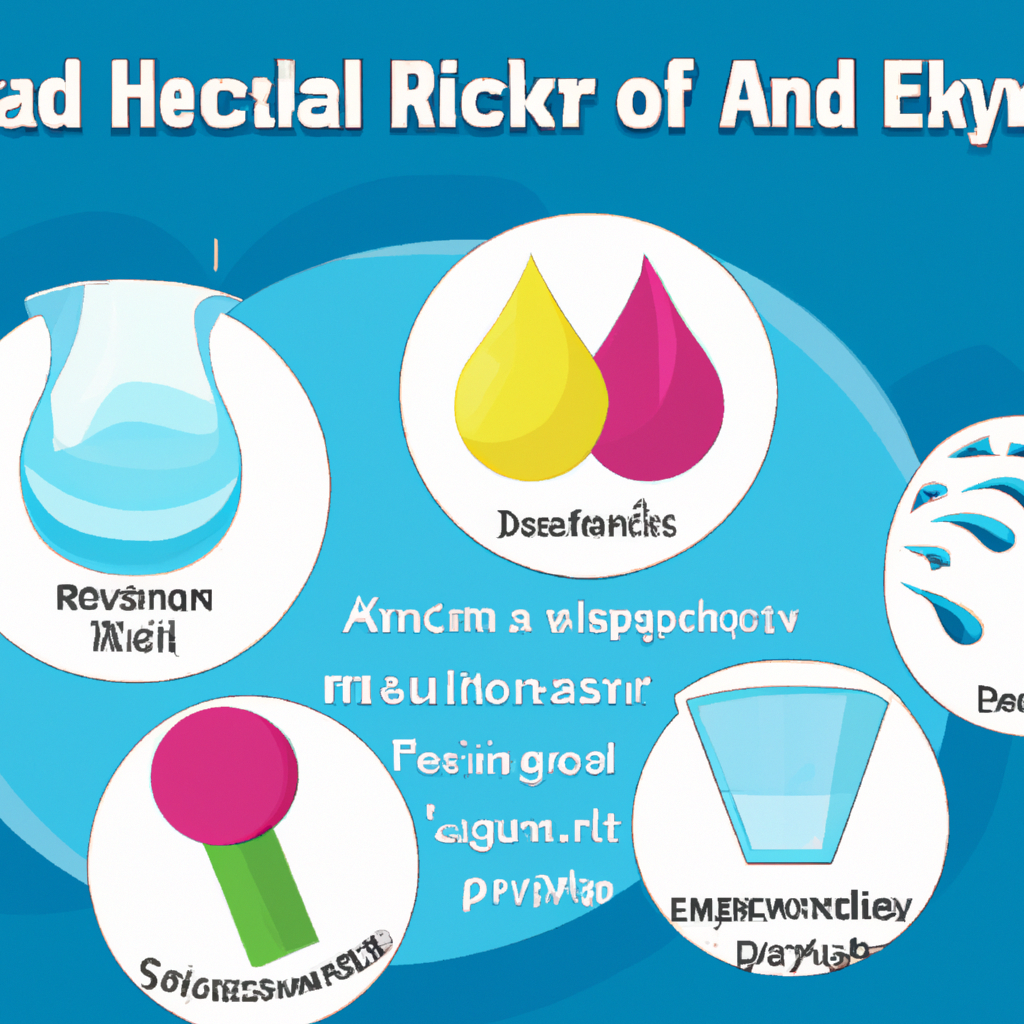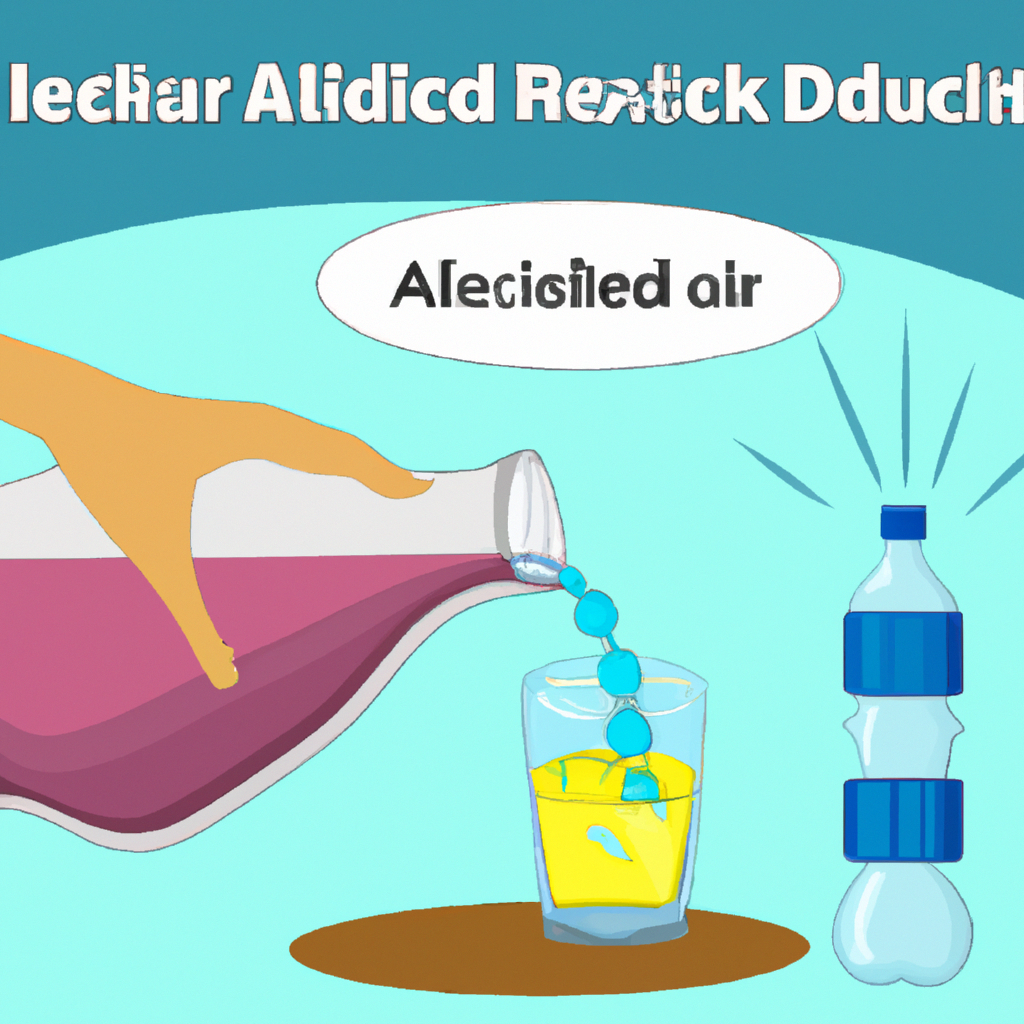Whether you’ve experienced acid reflux or know someone who has, understanding the importance of hydration in managing this condition is essential. Acid reflux occurs when stomach acid flows back up into the esophagus, causing a range of uncomfortable symptoms. However, by maintaining proper hydration levels, you can potentially alleviate these symptoms and find relief from the discomfort. In this article, we will explore the role of hydration in managing acid reflux and provide valuable insights into how you can incorporate hydration into your daily routine to support your overall digestive health. So let’s dive in and discover the significant impact that hydration can have on managing acid reflux.
Understanding Acid Reflux
Acid reflux, also known as gastroesophageal reflux disease (GERD), is a condition that occurs when stomach acid flows back up into the esophagus. This can cause a variety of uncomfortable symptoms, including heartburn, regurgitation, and chest pain. Understanding the causes and symptoms of acid reflux is essential in managing this condition effectively.
What is Acid Reflux?
Acid reflux is a common digestive disorder that occurs when the lower esophageal sphincter (LES) – a ring of muscle that acts as a valve between the esophagus and stomach – fails to close properly. When the LES is weak or relaxes inappropriately, stomach acid can travel back into the esophagus, irritating the sensitive lining and causing symptoms.
Causes of Acid Reflux
There are several factors that can contribute to the development of acid reflux. Some common causes include:
-
Hiatal hernia: A hiatal hernia occurs when the upper part of the stomach bulges through the diaphragm into the chest cavity. This can weaken the LES and increase the risk of acid reflux.
-
Obesity: Excess weight can put pressure on the abdomen, causing the LES to become weaker and allowing acid to reflux into the esophagus.
-
Pregnancy: Hormonal changes during pregnancy can relax the LES, leading to acid reflux.
-
Certain foods: Foods high in fat, spice, or acidity, as well as caffeinated beverages and alcohol, can trigger acid reflux symptoms in some individuals.
Symptoms of Acid Reflux
The symptoms of acid reflux can vary from person to person, but some common signs to look out for include:
-
Heartburn: A burning sensation in the chest that often occurs after eating or at night.
-
Regurgitation: The feeling of acid or food coming back up into the throat or mouth.
-
Chest pain: Sometimes, acid reflux can cause chest pain that can be mistaken for a heart attack.
-
Difficulty swallowing: Acid reflux can make it feel like there is a lump in the throat or like food is getting stuck.
-
Chronic cough: Acid reflux can irritate the throat and cause a persistent cough.
-
Hoarseness: Acid reflux can cause the voice to become hoarse or raspy.
Hydration and Acid Reflux
Understanding the importance of hydration in managing acid reflux is crucial. Proper hydration can play a significant role in preventing and alleviating symptoms of this condition.
Importance of Hydration in Managing Acid Reflux
Staying adequately hydrated is essential for overall health, and it can also help manage acid reflux symptoms. Drinking an adequate amount of water can help dilute stomach acid, reducing its impact on the esophagus. Additionally, proper hydration can promote healthy digestion and prevent constipation, which can contribute to acid reflux.
Effects of Dehydration on Acid Reflux
On the other hand, dehydration can worsen acid reflux symptoms. When you are dehydrated, the body produces less saliva, which plays a crucial role in neutralizing stomach acid. This can lead to an increase in acid reflux symptoms and discomfort.
Hydration as a Preventive Measure for Acid Reflux
Making sure you stay hydrated throughout the day can be an effective preventive measure to manage acid reflux. By consistently drinking enough water, you can help maintain proper digestion, reduce the concentration of stomach acid, and minimize the risk of acid reflux episodes.

Water Intake Recommendations
Understanding the recommended daily water intake and optimal timing of water consumption can help individuals with acid reflux manage their symptoms effectively.
Recommended Daily Water Intake
The amount of water each person needs can vary depending on factors such as age, weight, activity level, and overall health. However, a general guideline is to drink at least eight 8-ounce glasses of water per day, which is equivalent to about 2 liters or half a gallon. This recommendation can help maintain hydration levels and support optimal digestive function.
Optimal Timing of Water Consumption
To manage acid reflux symptoms, it is important to consider the timing of water consumption. Drinking water throughout the day, between meals, rather than immediately before or after eating, can help minimize the risk of triggering acid reflux. This allows the food to be properly digested, and dilutes stomach acid to prevent potential reflux episodes.
Alkaline Water and Acid Reflux
Alkaline water has gained popularity for its potential health benefits, including its impact on acid reflux management. Understanding what alkaline water is and how it can play a role in managing acid reflux can be helpful.
What is Alkaline Water?
Alkaline water is water that has a higher pH level than regular tap water. It typically has a pH of 8 or 9, making it slightly alkaline rather than neutral or acidic. The alkalinity of this water is believed to help neutralize excess stomach acid, potentially alleviating acid reflux symptoms.
The Role of Alkaline Water in Acid Reflux Management
While research on the exact effects of alkaline water on acid reflux is limited, some individuals with acid reflux report finding relief from their symptoms by drinking alkaline water. It is important to note that individual responses may vary, and consulting a healthcare professional is advisable to determine if alkaline water is a suitable option for managing acid reflux.

Other Hydrating Beverages
While water is the best choice for staying hydrated, incorporating other hydrating beverages into your diet can also be beneficial for managing acid reflux. Some options to consider include herbal teas, coconut water, and aloe vera juice.
Herbal Teas for Acid Reflux
Certain herbal teas, such as chamomile, ginger, and peppermint, can have soothing effects on the digestive system and help reduce acid reflux symptoms. These teas are caffeine-free and can be a comforting alternative to caffeinated beverages that can trigger acid reflux.
The Benefits of Coconut Water
Coconut water is a natural hydrating beverage that is low in acid and rich in electrolytes. It can help maintain hydration levels and may be a suitable choice for individuals with acid reflux as it is less likely to trigger symptoms compared to acidic juices or carbonated drinks.
Aloe Vera Juice and Acid Reflux
Aloe vera juice has long been used for its potential health benefits, including its soothing effects on the digestive system. Some individuals with acid reflux find relief by consuming aloe vera juice, as it can help soothe the irritation caused by stomach acid. It is important to choose aloe vera juice that is free of added sugars or artificial additives.
Water Temperature and Acid Reflux
The temperature of the water you drink can also impact acid reflux symptoms. Understanding the effects of cold water and the benefits of warm water can help manage this condition effectively.
Effects of Cold Water on Acid Reflux
Drinking cold water can cause the muscles of the esophagus to contract, potentially exacerbating acid reflux symptoms. Some individuals find that consuming cold beverages triggers heartburn or discomfort. It is advisable to opt for room temperature or warm water instead to minimize the risk of triggering acid reflux.
The Benefits of Warm Water for Acid Reflux Management
Drinking warm water can help soothe the digestive system and provide relief from acid reflux symptoms. Warm water can promote relaxation of the esophageal muscles, support healthy digestion, and prevent discomfort. Sipping on warm water throughout the day can be a simple and effective way to manage acid reflux symptoms.
Hydration Tips for Acid Reflux Sufferers
In addition to understanding the role of hydration, there are some practical tips that can help individuals with acid reflux stay hydrated and manage their symptoms effectively.
Sip Water throughout the Day
Rather than drinking large amounts of water at once, it is beneficial to sip on water throughout the day. This allows for better hydration and digestion, reducing the risk of triggering acid reflux. Keeping a refillable water bottle with you can serve as a reminder to drink water regularly.
Avoid Triggering Beverages
Caffeinated beverages, carbonated drinks, and acidic juices can all trigger acid reflux symptoms. To manage acid reflux effectively, it is advisable to avoid or limit the consumption of these beverages. Opting for hydrating alternatives like herbal teas, coconut water, or alkaline water can be a healthier choice.
Consider Eating Water-Rich Foods
In addition to drinking water, incorporating water-rich foods into your diet can help increase hydration levels. Fruits and vegetables with high water content, such as watermelon, cucumbers, and citrus fruits, can contribute to overall hydration and support digestive health.
Use a Hydration Reminder
In today’s busy world, it can be easy to forget to drink enough water. Using a hydration reminder app or setting reminders on your phone can help you stay on track with your water intake goals. Consistently staying hydrated can support digestive health and help manage acid reflux symptoms.
Conclusion
Proper hydration plays a crucial role in managing acid reflux. Understanding the importance of hydration, recommended daily water intake, and the benefits of incorporating hydrating beverages can help individuals with acid reflux alleviate symptoms and improve their overall well-being. By staying hydrated and making mindful choices in beverage consumption, you can effectively manage acid reflux and enjoy a more comfortable life.
